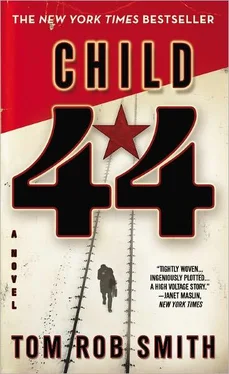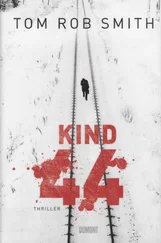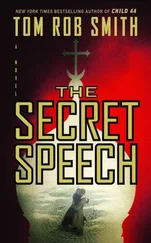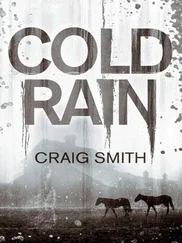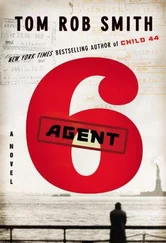— We wouldn’t have to kill him.
— Yes we would, because we couldn’t leave him tied up on the roadside. That would be a far greater risk. We either kill him, or trust him. Raisa, this is how things fall apart. We’ve been fed, sheltered and transported by these people. If we turn on them, execute one of their friends for no reason other than as a precaution, I’d be the same man you despised in Moscow.
Even though he couldn’t see her, he knew she was smiling.
— Were you testing me?
— Just making conversation.
— Did I pass?
— That depends on whether we get to Shakhty or not.
After a stretch of silence, Raisa asked.
— What happens once this is over?
— I don’t know.
— The West will want you, Leo. They’ll protect you.
— I’d never leave this country.
— Even if this country is going to kill you?
— If you want to defect, I’ll do everything I can to get you onto a boat.
— What are you going to do? Hide in the hills?
— Once that man is dead, once you’re safely out of the country, I’m going to turn myself in. I don’t want to live in exile, among people that want my information but hate me. I don’t want to live as a foreigner. I can’t do it. It would mean that everything these people in Moscow have said about me would be true.
— And that’s the most important thing?
Raisa sounded hurt. Leo touched her arm.
— Raisa, I don’t understand.
— Is it that complicated? I want us to stay together.
Leo said nothing for a moment. Finally he replied:
— I can’t live as a traitor. I can’t do it.
— Which means we’ve got about twenty-four hours left?
— I’m sorry.
— We should make the most of this time together.
— How do we do that?
— We tell each other the truth.
— The truth?
— We must have secrets. I know I have some. Don’t you? Things you’ve never told me.
— Yes.
— Then I’ll go first. I used to spit in your tea. After I heard about Zoya’s arrest, I was convinced you’d reported her. So, for about a week, I spat in your tea.
— You spat in my tea?
— For about a week.
— Why did you stop?
— You didn’t seem to care.
— I didn’t notice.
— Exactly. OK, your turn.
— Truthfully—
— That’s the point of this game.
— I don’t think you married me because you were afraid. I think you scouted me out. You made it look like you were scared. You gave me a false name and I pursued you. But I think you targeted me.
— I’m a foreign agent?
— You might know of people working for Western agencies. Maybe you were helping them. Maybe that idea was at the back of your mind when you married me.
— That’s not a secret, that’s speculation. You have to share secrets — hard facts.
— I found a kopek among your clothes, the coin could be split it in two — it’s a device for smuggling microfilm. Agents use them. No one else would have one.
— Why didn’t you denounce me?
— I couldn’t do it.
— Leo, I didn’t marry you as a way of getting close to the MGB. I told you the truth before, I was scared.
— And the coin?
— That coin was mine…
Her voice drifted off, as though weighing up whether or not to continue.
— I didn’t use it to carry microfilm. I used it to carry cyanide paste, when I was a refugee.
Raisa had never spoken about the period after her home had been destroyed, the months on the road — the dark ages of her life. Leo waited, suddenly nervous.
— I’m sure you can imagine the kind of things that happened to women refugees. Soldiers, they had needs, they were risking their lives — they were owed. We were their payment. After one time — and there were several — I hurt so much, I swore if it ever happened again, if it ever looked like happening again, I’d rub that paste across his gums. They could kill me, hang me, but maybe it would make them think twice about doing it to another woman. Anyway, it became my lucky coin because as soon as I started carrying it I never had any problems. Maybe men can sense a woman with cyanide in her pocket. Of course, it didn’t cure the injuries I’d sustained. There was no medicine. That’s the reason I can’t get pregnant, Leo.
Leo stared into the darkness, at the place where he imagined his wife must be. During the war women had been raped during the occupation and then raped again by their liberators. As a soldier he knew such activity had been sanctioned by the State, considered part of the fabric of war and an appropriate reward for a brave soldier. Cyanide had been used by some to take their own lives in the face of impossible horrors. Leo supposed that most men might’ve checked the woman for a blade or a gun but a coin — that would’ve slipped their attention. He rubbed the palm of her hand. What else could he do? Apologize? Say he understood? He’d framed that newspaper clipping, hung it on the wall, proud, oblivious to what the war meant to her.
— Leo, I have another secret. I’ve fallen in love with you.
— I’ve always loved you.
— That’s not a secret, Leo. You’re three secrets behind.
Leo kissed her:
— I have a brother.
15 July
Nadya was alone in the house. Her mother and sister had gone to visit their grandmother and although Nadya had initially accompanied them, as they’d approached her grandmother’s apartment block she’d feigned a stomach ache and begged to be allowed to return. Her mother had agreed and Nadya had hurried back home. Her plan was simple. She was going to open the basement door and find out why her father spent so long downstairs in what must be a dark cold room. She’d never been down there, not once. She’d walked around the building feeling the damp bricks and imagining what it must be like inside. There were no windows, just a ventilation hole for the stove. It was strictly forbidden, out of bounds, an unbreakable rule of the house.
Her father was on a work trip at the moment. But he’d be back soon, perhaps as early as tomorrow, and she’d heard him talk about improving their home, which included building a new door for the basement. Not the front door, not the door that everyone used and which kept the warmth in. His first priority was the basement door. Admittedly it was flimsy but all the same. Why was it so important? In a couple of days he’d have fitted a new door which she wouldn’t be able to open. If she wanted to break in, if she wanted answers to her questions, she had to do it now. The lock was a simple latch. She’d studied it carefully and tested it to see if a knife could be squeezed in between the door and the frame, lifting up the latch. It could.
The latch raised, Nadya pushed the door open. Excited, afraid, she took a step down. She released the door and it swung shut. Some light crept in behind her, under the door and around the sides. Other than that the only light came through the ventilation hole downstairs. Adjusting her eyes to the gloom she reached the bottom of the stairs and surveyed her father’s secret room.
A bed, a stove, a small table and a chest — there was nothing mysterious. Disappointed, she snooped around. An old lamp hung on the wall and pinned up beside it were a series of newspaper clippings. She walked towards them. They were all the same: a photograph of a Russian soldier standing beside a burning tank. Some of the photographs had been cropped so that all you could see was the soldier. He was handsome. She didn’t recognize him. Puzzled by this collage she picked up a tin plate which had been left on the floor, no doubt for the cats. Turning her attention to the chest, she put her hands on the top and lifted, just a little, just to see if it was locked. The wooden lid was heavy but it wasn’t locked. What was inside? She lifted it a little more; suddenly she heard another noise — the front door.
Читать дальше
